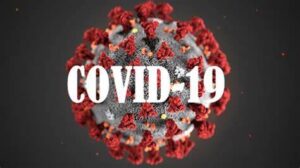I just received a tragic bit of news from a friend who lives in Amarillo.
His wife died this past spring. She suffered from Alzheimer’s disease. She also had tested positive for COVID-19. My friend told me this: The worst part of it was that I didn’t get to see her the last 4 months. Her nursing home was in total lock down.
That statement, right there, should tell us all plenty about the terrible nature of the pandemic that has killed more than 152,000 Americans. More deaths will follow. We are not experiencing, as a senior Trump administration official said, a time of “triumph” in the fight against the pandemic.
This story has created an unheard-of phenomenon in many respects. One of them involves the isolation that COVID patients must endure. They cannot have family near them as they struggle for life. No friends. No loved ones. They die separated from those who cherish them the most.
Which arcs back to another aspect of this disease. It is the special relationships that nurses, doctors and care facility staff develop with these patients. Think of this for a moment. These medical responders become “surrogate loved ones” for the people in their care.
How many stories have you heard since early this year about nurses and physicians sobbing at the death of patients who cannot feel the embrace of their spouse, their children, their parents? I have lost count. Yet every story I hear told fills me with heartache that tugs just a little harder than the previous time.
Then there are the stories of patients who are released from medical care and reunited with the people who love them. The happiness we see and hear from the medical personnel is as joyous as the sadness felt at the end of the tragic stories.
My friend’s story is not unique to the larger world. To him, though, it is unbearable, unspeakable and unimaginable. It hurts to hear this news because of the unique misery it brings to those who must endure it.
